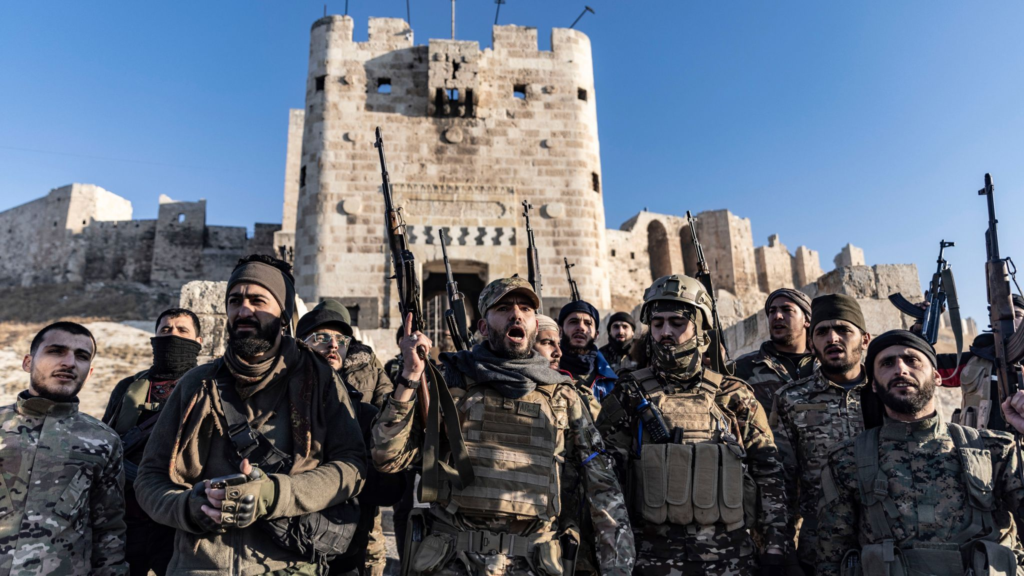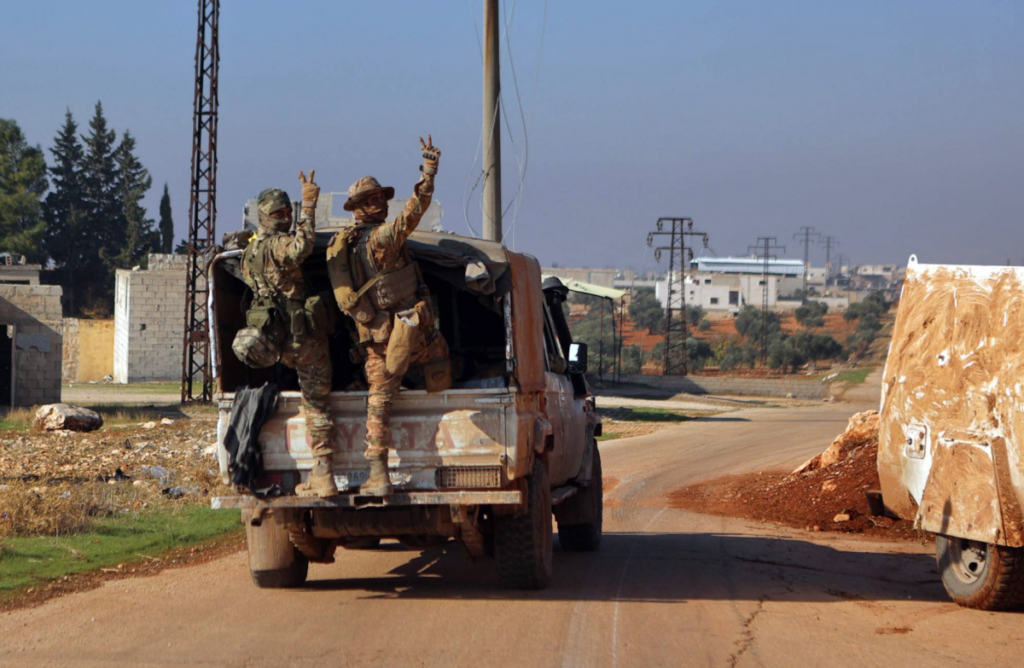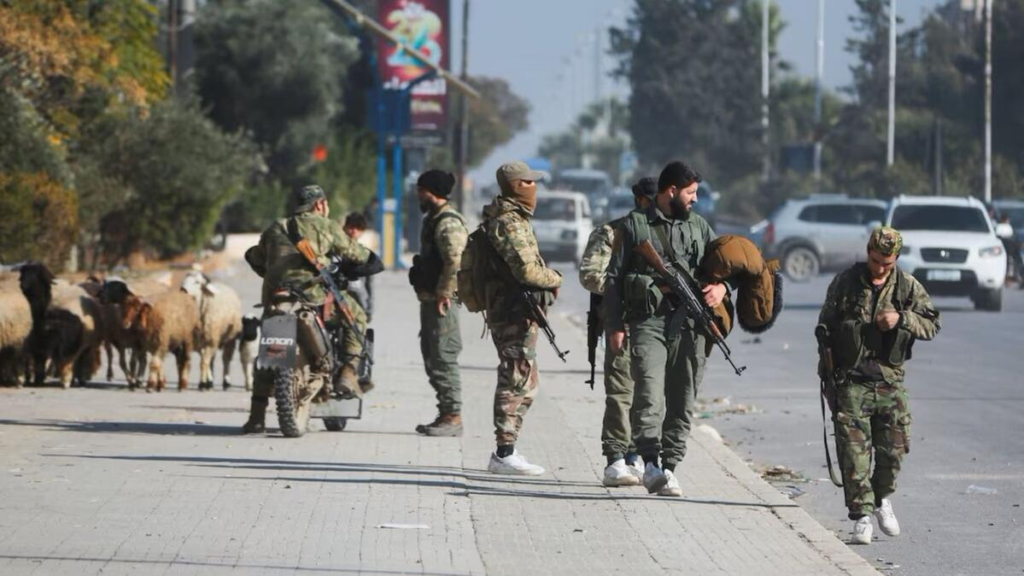Russia carries out strikes in Syria’s Aleppo, marking one of the most intense military offensives in recent years. Following a surprise assault by the Islamist group Hayat Tahrir al-Sham (HTS) on the city of Aleppo, Russia’s Defense Ministry reported that airstrikes supported the Syrian Army, targeting rebel strongholds.
These strikes reportedly resulted in the deaths of over 300 insurgents, with civilian casualties also confirmed. The conflict has reignited tensions in a region already facing significant geopolitical challenges, underscoring the fragile and volatile state of Syria’s ongoing civil war.
The Intensified Conflict and Its Origins
The latest offensive in Aleppo began when the rebel group Hayat Tahrir al-Sham launched a coordinated attack, penetrating deep into the heart of the city. This marked the most significant assault on government-held territory since the front lines in the civil war largely froze in 2020.
HTS, formerly known as the Nusra Front, is an Islamist militant group and is designated a terrorist organization by major international powers, including the United States, Russia, and Turkey.
Aleppo has long been a critical battleground in Syria’s civil war, symbolic of the broader struggle between the Assad regime and various opposition factions. Once Syria’s largest and most prosperous city, Aleppo fell under government control in 2016 after a brutal siege that left much of the city in ruins.
Read : Anti-Gov Rebels Enter Syria’s Aleppo for the First Time in 8 Years
The return of active conflict to this city indicates a major escalation and presents a significant challenge to President Bashar al-Assad’s government, which has maintained control with support from Russia and Iran.

The timing of the attack is also notable. Assad was visiting Russia at the time, with reports suggesting his trip was partly due to the deteriorating health of his wife. This absence, coupled with the coordinated nature of the rebel assault, indicates a strategic attempt by the insurgents to exploit a moment of potential vulnerability.
Read : Syria : One Of the Most Violent Countries In the World
The rebels’ capture of Aleppo airport and the strategic town of Maraat al Numan in Idlib province underscores their tactical intent to disrupt supply lines and weaken government control in the region.
Russia’s Strategic Involvement and Objectives
Russia’s involvement in the Syrian civil war dates back to 2015, when it launched a military intervention to support Assad’s government against various opposition forces. This support has been crucial in allowing the Syrian regime to reclaim significant portions of territory.
The recent airstrikes in Aleppo are consistent with Russia’s long-standing strategy of providing direct military support to the Assad regime while targeting groups it considers terrorist organizations.
The Russian Center for Reconciliation of the Opposing Parties in Syria reported that the airstrikes focused on insurgent gathering areas, control centers, and logistical positions. This indicates a targeted approach aimed at crippling the rebels’ ability to continue their offensive.
The strikes were not without civilian casualties, however, further complicating the humanitarian situation in the region. Hospitals and educational facilities, including Aleppo University, reportedly suffered damage from rebel projectiles, contributing to the toll on civilians.

From a strategic perspective, Russia’s actions in Syria are driven by several factors. First, maintaining a stable and compliant regime in Damascus is crucial for Russia’s geopolitical interests in the Middle East.
Syria provides Russia with a key ally in the region and hosts its only naval base in the Mediterranean at Tartus. Second, the conflict serves as a demonstration of Russia’s military capabilities and its willingness to defend its allies, reinforcing its image as a global power.
The latest strikes also serve as a message to other regional and international actors, particularly the United States and Turkey, who have their own interests and involvement in Syria.
By demonstrating its readiness to engage in large-scale military action, Russia is signaling that it remains committed to ensuring Assad’s regime remains in power, despite ongoing challenges and international pressures.
Broader Geopolitical Ramifications and Humanitarian Concerns
The resurgence of intense fighting in Aleppo carries significant geopolitical implications. The Syrian conflict has long been a proxy battleground for various international powers. Russia and Iran support Assad, while Turkey has backed certain rebel factions.
The United States, while primarily focused on combating the Islamic State, also maintains a military presence in northeastern Syria. This complex web of alliances and rivalries makes the situation in Syria particularly volatile.

The latest offensive has raised concerns about the potential for a broader regional conflict. The timing coincides with ongoing hostilities in Gaza and tensions between Israel and Hezbollah in Lebanon, both of which involve Iranian-aligned groups.
The possibility of a new front opening in Syria could exacerbate these tensions, leading to a wider conflict involving multiple state and non-state actors.
The humanitarian impact of the renewed fighting cannot be overstated. Syria has already endured over a decade of civil war, resulting in hundreds of thousands of deaths and the displacement of millions. The city of Aleppo, once a cultural and economic hub, has been particularly hard-hit.
The recent airstrikes and rebel offensives have displaced more civilians and further strained humanitarian resources. Reports of civilian casualties, including those resulting from damage to hospitals and universities, highlight the ongoing suffering of the Syrian people.
The international community has called for de-escalation, but the path to peace remains uncertain. The United States has denied any involvement in the recent rebel offensive, emphasizing that its primary focus remains on preventing the resurgence of the Islamic State.

However, accusations from Iran that the offensive is part of an Israeli-American plan to destabilize the region reflect the deep mistrust and competing narratives that complicate efforts to resolve the conflict.
In this context, the role of international diplomacy is crucial. The 2020 de-escalation agreement between Russia and Turkey had largely maintained a fragile peace in northwestern Syria.
The recent offensive threatens to unravel this agreement, potentially drawing Turkey further into the conflict. Turkey’s response to the situation will be critical, as it has maintained a military presence in the region and has a vested interest in preventing a resurgence of violence that could lead to new waves of refugees crossing its border.
The renewed fighting in Aleppo is a stark reminder of the challenges facing Syria and the broader Middle East. The conflict is far from over, and the humanitarian crisis continues to deepen. As major powers pursue their strategic interests, the people of Syria remain caught in the crossfire, facing an uncertain and perilous future.
The international community’s ability to navigate these complex dynamics and push for a sustainable resolution will determine the fate of millions and the stability of an already fragile region.

